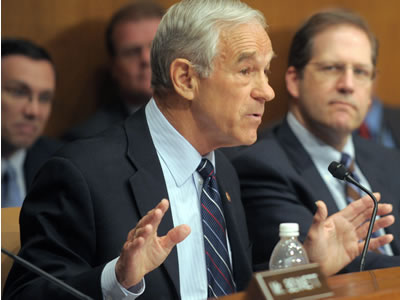Dr. Ron Paul: circle of violence plagues U.S. foreign policy

Republican Congressman Ron Paul is pointing to a recently released study by the National Bureau of Economic Research (NBER) as more evidence that rising "collateral damage", specifically in Afghanistan, fuels anti-American violence.
In the study, it was calculated that each time U.S. or NATO forces kill Afghan civilians, insurgents and their sympathizers typically retaliate with six additional assaults on troops over a six week period of time. Likewise, when U.S. or NATO forces avoid two civilian casualty incidents, they can expect one less reprisal during the same six week period.
This data would appear to confirm former General Stanley McChrystal's "insurgent math" in which, according to the former Afghan War Commander, for every one insurgent killed, ten more are recruited to the cause as a result of collaterally-related civilian deaths.
Recently, General Petraeus somewhat eased ultra-strict U.S. force engagement rules, but he continues to maintain that minimizing civilian casualty rates is the key to a successful, long term counter-insurgency strategy.
Proponents of more proactive war efforts in Afghanistan, Pakistan, and Iraq often counter, however, that U.S. troops must take whatever actions necessary to defend themselves, civilian casualties are unfortunate realities in post 9/11 war, insurgents intentionally embed themselves in civilian neighborhoods, and anti-US sentiment would exist regardless of the level of unintended civilian casualties.
Relating this alleged "circle of violence", as he calls it, to the bigger picture, Paul also claims that the Afghanistan and Iraq wars challenge the conventional wisdom of U.S. foreign policy, a policy that finds the U.S. increasingly at war with corrupt leaders and dangerous groups that it once funded and supported.
For example, America supported Saddam Hussein during the eight year Iran-Iraq War, as well as the Mujahideen (who became the Taliban and Al-Qaeda) during the Soviet Union's ten year occupation of Afghanistan. Paul points to former U.S. ally-turned dictator Manuel Noriega as another glaring example.
According to Paul, if current policy is not significantly revised, America will continue to find itself militarily and economically drained. Considering the United States has spent over $1 trillion on the Afghanistan-Iraq-Pakistan wars since 2001, lost over 5,000 troops, had over 35,000 troops maimed for life, and is currently experiencing a PTSD epidemic and record suicide rate in the military, perhaps the time has come to more seriously examine this alternative perspective.




